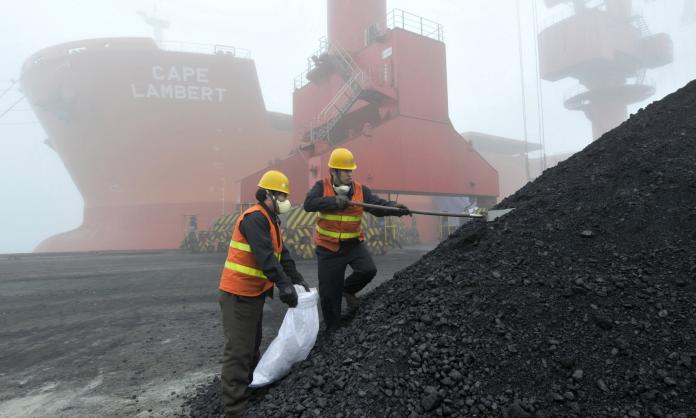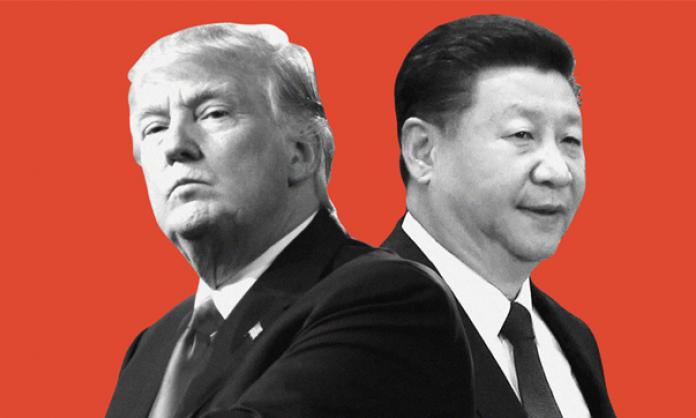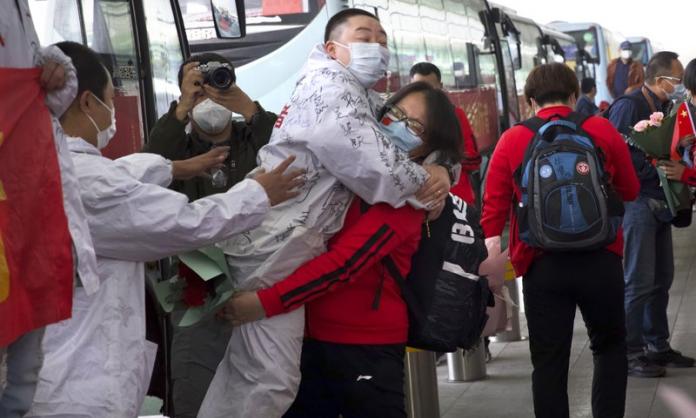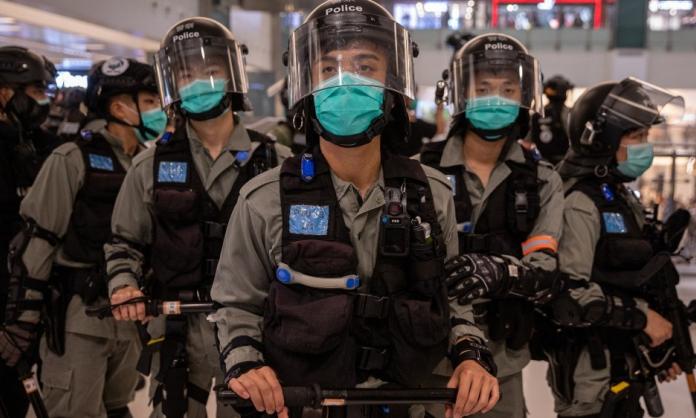Relations between Australia and China have rapidly deteriorated over the last weeks. Scott Morrison led the charge for an inquiry into the origins of COVID-19, a move widely considered to be an attack on China’s initial handling of the outbreak. China hit back with an 80 percent tariff on Australian barley and suspended imports of Australian beef. More worrying for Australian capitalists are new inspection guidelines on iron ore and reports that Chinese power stations are being told to avoid using Australian coal. Yu Lei, a research fellow at Liaocheng University in China, told the Global Times: “This is another implicit warning to Australia. It is associated with how Australia has acted”.
The Australian government is downplaying the tensions and trying to negotiate a solution with the Chinese government, which nevertheless is ignoring calls from senior Australian ministers. The federal government’s hesitant response reflects the reality that in a conflict between the two countries, China is in a stronger bargaining position.
The Australian economy is highly dependent on China. The latter’s dramatic economic growth underpinned the mining boom and continues to expand markets for Australian businesses. Profits from minerals exports are important not only for the mining industry, but also for construction and banking. Chinese tourists and students, and Chinese investment, have contributed to the health of Australian capitalism for years. Last August, PricewaterhouseCoopers chief economist Jeremy Thorpe predicted that, if Chinese annual GDP growth declined by 3.5 percentage points, it could cost Australia’s national income $140 billion and 550,000 jobs.
So it’s not surprising that representatives of corporate Australia in academia and policy circles are urging the government to restrain itself. Hugh White, emeritus professor of strategic studies at the Australian National University, recently argued in the Australian Financial Review: “However good it may make us feel, Australia’s bold defiance of Beijing has been spectacularly counterproductive”. The billionaire owner of Seven West Media, Kerry Stokes, called on Morrison to back down. Helen Sawczak, chief executive of the Australia China Business Council, criticised the PM for leading the push for an inquiry that was likely to happen anyway. Mining magnate Twiggy Forrest made the most direct intervention at a press conference with health minister Greg Hunt. Forrest, without telling Hunt, invited a Chinese diplomat to explain how well China had dealt with COVID-19.
With so much at stake for Australian big business, why did Morrison lead the charge for the inquiry? It is impossible to understand without looking at the shifting tectonic plates of world politics. The US government is whipping up an increasingly vitriolic campaign against China, president Donald Trump accusing Beijing of producing the coronavirus in a Wuhan chemical lab and unleashing it on the world. “This is really the worst attack we’ve ever had”, he told reporters at the White House in early May. “This is worse than Pearl Harbor. This is worse than the World Trade Center. There’s never been an attack like this ... It could have been stopped in China. It should have been stopped right at the source, and it wasn’t.”
The United Nations health agency’s annual assembly meeting last week descended into shouting matches between representatives of the two superpowers. China was forced to accept an inquiry into the responses to the virus, but US representatives weren’t satisfied. The first day of the meeting ended with Trump, via video call, threatening to pull all US funding from the World Health Organization unless it took a harder stand against China.
The US has tightened economic restrictions, including tougher legal requirements on Chinese businesses listed on US stock exchanges, which could result in some being delisted. This comes on top of steep tariffs already imposed in the nascent trade war between the two countries.
This has put China in a difficult situation. While it has done better than the US in dealing with the outbreak of COVID-19, the increased tensions are creating serious problems. For decades, the legitimacy of the Chinese government has rested on enormous economic growth. In 2009, leading figures in the Communist Party warned that if the economy failed to grow by 8 percent per year, social discontent could grow, throwing into question the continuation of one-party rule. The economy was slowing even before the pandemic and is now threatened by a series of crises: tougher economic pushback from the US, the ongoing effects of COVID-19 and a contracting world market.
Xi Jinping has ramped up nationalist rhetoric against the US and has announced plans to pour funding into western China to build a larger manufacturing base and increase domestic demand to compensate for collapsing export markets. Military generals are demanding funding increases to compete with the US and deal with renewed opposition activity in Tibet and Xinjiang. Hardline diplomats have been let off the leash to shut down China’s critics abroad.
The Australian government is walking a tightrope between two superpowers. Conflicting with Australia’s economic relationship with China are the deep geopolitical and cultural ties between Australia and the US. In a situation where the US is increasingly trying to isolate China, considerable pressure is put on Canberra to join in. Yet Australia is not simply at the beck and call of the US government; it is an imperialist power in its own right. Reinforcing the pressure from the US are Australian government concerns about China’s rising influence in the Asia-Pacific.
While the Australian ruling class at the end of the day will side with US power, it grows fat through relations with the Chinese and hopes that serious conflict between the superpowers won’t eventuate or will occur far into the future. The question is how long Australia will be able to walk the line. As tensions between the US and China continue to rise, we should expect more Australian government displays of loyalty to the US.












